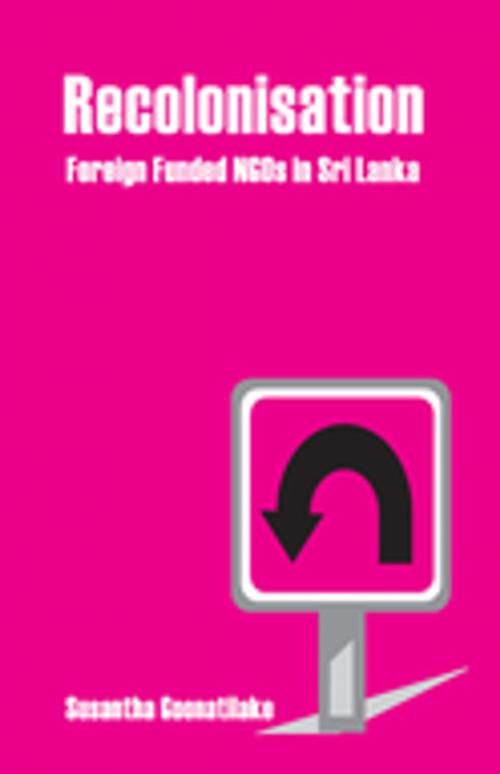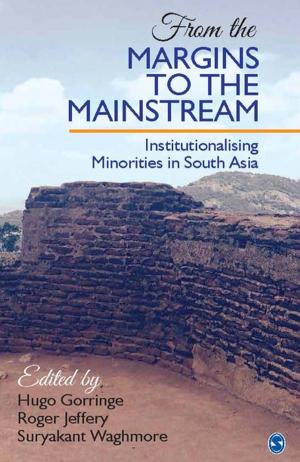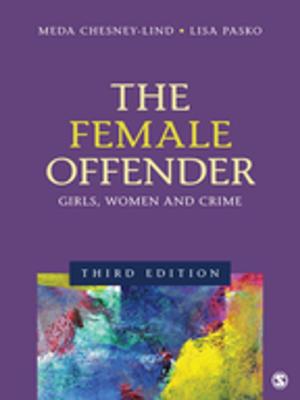Recolonisation
Foreign Funded NGOs in Sri Lanka
Business & Finance, Economics, Economic Development, Nonfiction, Reference & Language, Reference, Social & Cultural Studies, Social Science| Author: | Susantha Goonatilake | ISBN: | 9789352802753 |
| Publisher: | SAGE Publications | Publication: | September 5, 2006 |
| Imprint: | Sage Publications Pvt. Ltd | Language: | English |
| Author: | Susantha Goonatilake |
| ISBN: | 9789352802753 |
| Publisher: | SAGE Publications |
| Publication: | September 5, 2006 |
| Imprint: | Sage Publications Pvt. Ltd |
| Language: | English |
As the Cold War ended there was a conscious policy shift in Western countries—and, as a consequence, among international agencies—which was directed at supporting non-governmental organizations (NGOs) in the developing world. As a result, large amounts of foreign funds began to be granted to various NGO groups with the ostensible aim of encouraging pro-people development.
This book contributes to the emerging debate which is questioning the role of foreign funded NGOs. There is a growing awareness that they often have a powerful and structural influence, impacting on both organisational landscapes and civil society. In this context, Susantha Goonatilake studies the political economy of NGO activity in Sri Lanka, a country which once had a vibrant democratic tradition and a functioning civil society.
The author maintains that focused NGO penetration into the country began in the 1980s, simultaneously with the growth of the authoritarian state. He contends that their subsequent activities in Sri Lanka have had a deep and visible impact on civic life: from restructuring the state, to de-mobilising the armed forces, to privatising foreign relations, to controlling key segments of academia and media. To illustrate his argument he takes up four areas—social development, human rights, international relations and academia—and describes the role of foreign funded NGOs in all four. Through these case studies the author highlights his basic premise: that the work of foreign funded NGOs actually undermines local civil institutions and that they project an implicit agenda for re-colonisation..
Constituting the first detailed case study of what is happening on the ground, this absorbing book challenges the widely held view of foreign funded NGOs being unsullied harbingers of good.
As the Cold War ended there was a conscious policy shift in Western countries—and, as a consequence, among international agencies—which was directed at supporting non-governmental organizations (NGOs) in the developing world. As a result, large amounts of foreign funds began to be granted to various NGO groups with the ostensible aim of encouraging pro-people development.
This book contributes to the emerging debate which is questioning the role of foreign funded NGOs. There is a growing awareness that they often have a powerful and structural influence, impacting on both organisational landscapes and civil society. In this context, Susantha Goonatilake studies the political economy of NGO activity in Sri Lanka, a country which once had a vibrant democratic tradition and a functioning civil society.
The author maintains that focused NGO penetration into the country began in the 1980s, simultaneously with the growth of the authoritarian state. He contends that their subsequent activities in Sri Lanka have had a deep and visible impact on civic life: from restructuring the state, to de-mobilising the armed forces, to privatising foreign relations, to controlling key segments of academia and media. To illustrate his argument he takes up four areas—social development, human rights, international relations and academia—and describes the role of foreign funded NGOs in all four. Through these case studies the author highlights his basic premise: that the work of foreign funded NGOs actually undermines local civil institutions and that they project an implicit agenda for re-colonisation..
Constituting the first detailed case study of what is happening on the ground, this absorbing book challenges the widely held view of foreign funded NGOs being unsullied harbingers of good.















